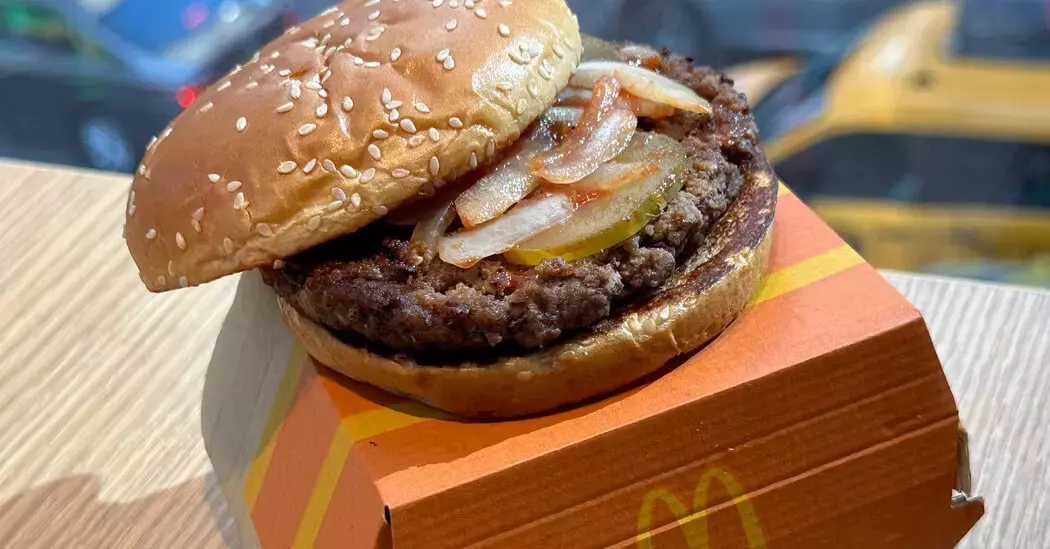A sweeping onion recall linked to a multistate E. coli outbreak has prompted several major fast food chains to remove raw onions from their menus, causing widespread disruption across the industry. The recall, which centers around McDonald's Quarter Pounder, has led Taco Bell, Pizza Hut, and KFC to suspend onion offerings at select locations as a precautionary measure.
Tackling the Onion Crisis: How the Fast Food Giants are Responding
The Onion Recall: A Domino Effect
The onion recall, initiated by Taylor Farms, the sole supplier of the affected onions to McDonald's, has sent shockwaves through the fast food industry. The recall, which covers a range of yellow onion products, including diced, peeled, and whole varieties, has prompted Yum Brands, the parent company of Taco Bell, Pizza Hut, and KFC, to take swift action. In an effort to ensure the safety of their customers, these chains have temporarily halted the use of fresh onions in select locations, citing an "abundance of caution."The decision to remove onions from the menu has not been taken lightly, as these ingredients are integral to the signature dishes offered by these fast food giants. However, with the potential for E. coli contamination looming, the companies have prioritized public health and safety over maintaining their traditional menu offerings.The Impact on Consumers and Operations
The onion recall has had a significant impact on the dining experience for customers of these fast food chains. Patrons accustomed to the familiar flavors and textures of onions in their favorite menu items may now find themselves faced with a noticeable absence. This change has the potential to alter the overall taste and appeal of these dishes, potentially leading to customer dissatisfaction.Beyond the impact on the customer experience, the onion recall has also presented operational challenges for the affected fast food chains. Adapting recipes, adjusting supply chains, and communicating the changes to customers all require significant resources and coordination. The disruption to their normal operations could result in delays, inconsistencies, and additional costs for these businesses.The Search for Alternatives: Navigating the Onion-Free Landscape
As the fast food industry grapples with the onion crisis, companies are actively exploring alternative ingredients and solutions to maintain the quality and appeal of their menu offerings. This may involve sourcing onions from different suppliers, experimenting with substitute vegetables, or even developing new recipes that do not rely on onions as a primary component.The ability of these chains to quickly adapt and pivot their operations will be crucial in minimizing the impact on their customers and maintaining their competitive edge in the fast-paced food service industry. The successful navigation of this challenge will not only demonstrate the resilience of these companies but also their commitment to providing safe and satisfying dining experiences.The Broader Implications: Food Safety and Supply Chain Vulnerabilities
The onion recall has shone a spotlight on the broader issues of food safety and the vulnerabilities inherent in complex supply chains. The fact that a single supplier's product can trigger a widespread disruption across multiple major food chains highlights the need for robust traceability, quality control, and contingency planning within the industry.This incident serves as a wake-up call for the fast food industry, as well as the broader food service sector, to reevaluate their supply chain practices, strengthen their food safety protocols, and develop more resilient systems to mitigate the impact of future crises. By addressing these systemic challenges, the industry can work towards a future where the safety and reliability of the food supply are paramount, and the disruption caused by incidents like the onion recall can be minimized.
